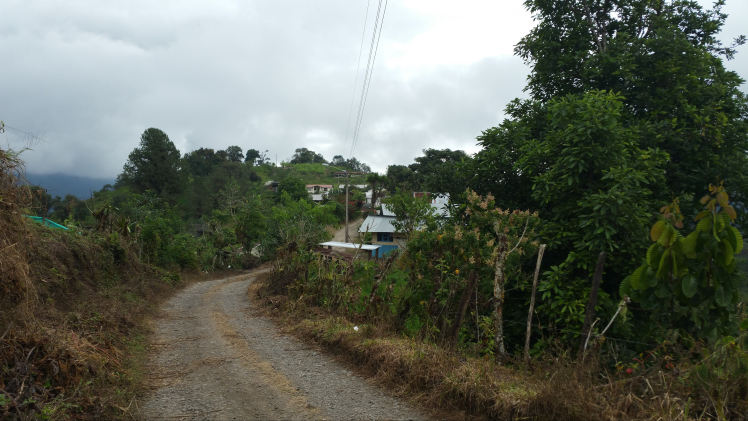Soundscapes and Mobility: Intersections, Navigation and Impacts
Greetings from Ecuador!
Building off of my research from last summer, I am spending six weeks in a small farming community on the western slopes of the Ecuadorean Andes. I am three weeks in and have been living with the Pullugando family, with whom I became friends with on my last trip here. Last summer, I set up three audio recorders in a nearby conservation reserve, but having visited the Pulllugando family I decided to move the bulk of my project to their community, even moving one of my recorders to their farm. Two of the recorders are still going strong, but one of them has been damaged. We believe a monkey tore out the microphone from the side of the recorder, so I am going to try to fix it before I leave.
My main focus this time around is to look at the intersections between sound and mobility in this farming community. My goals are to complete formal and informal interviews with community members and attend as many events and programs as possible to get to know people. In addition, I was asked by several community members to teach English at the local school as it is now legally mandated for all children in Ecuador to receive English classes, but in areas like this community there is no one available to teach English.
The family I live with is highly involved in the Baptist church here, so there are two or three events a week involving youth and other church members. I initially thought that I would have trouble getting around and talking to people, but the events do not seem to stop, particularly on the weekends. The community may be remote, but the movement of people and things is in constant motion and this past weekend was a great example of this.
This past Friday I came back to the community from the reserve, having checked on my recorders there. To get back to the community I had to walk down from the reserve to the main highway, catch a bus to the nearest town, then call up to ask a family member to come down and pick me up. The road up to the community from town is a 5km windy mountain road with no bus besides the daily milk truck that picks up the milk from all the farms in the morning and then heads to the closest city to sell it and return in the afternoon. Without a car or a motorcycle, the only way up is to walk for about two hours or catch a ride from someone. When I got back to the house, we all went to the youth group meeting, which happens every Friday evening.
On Saturday, a group of people got together around 2pm to play soccer on the local school courts. For dinner, we went over to a friend’s house who was hosting many of the youth group. I made banana pudding for dessert and we cooked BBQ chicken, lentils, rice and salad. We made lemonade as well, as there is a constant supply of free lemons from the trees up here. During dinner, several people had to leave to pick up family members down in the town below, but they returned. After dinner, we played cards and then slowly people started to leave around 10pm.
On Sunday, I made five pizzas, as we had some of the extended family over for lunch, and we also gave one of the pizzas to the couple who hosted us for dinner the night before.
Cooking has ended up being a great way to contribute something to the people around me, as well as teaching English at the local school. Having learned so much about the life here already, I am excited to get to work on narrowing my project down to a succinct research question to pursue for my dissertation research next year!
Claire Wright is a PhD student in Anthropology and Folklore and Ethnomusicology.

